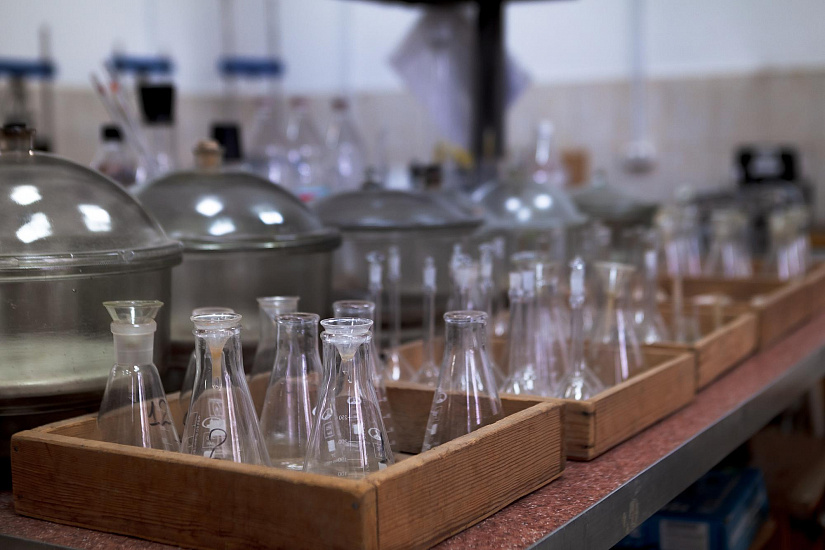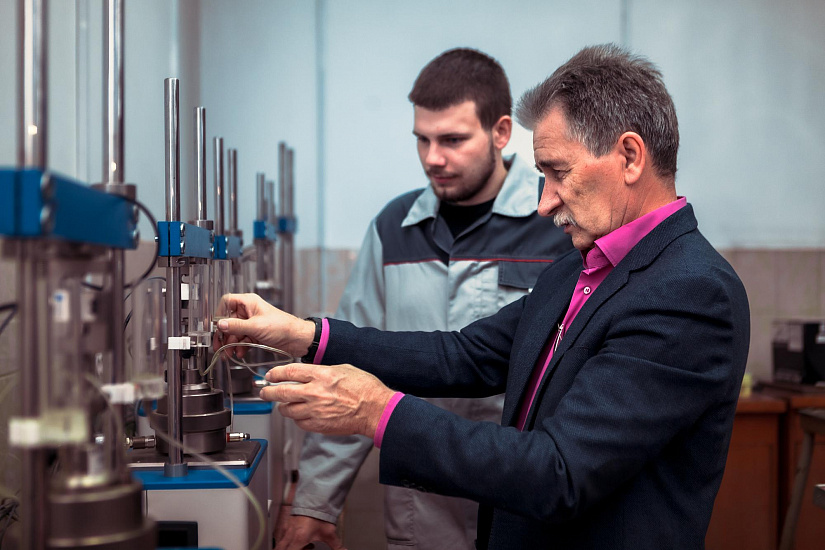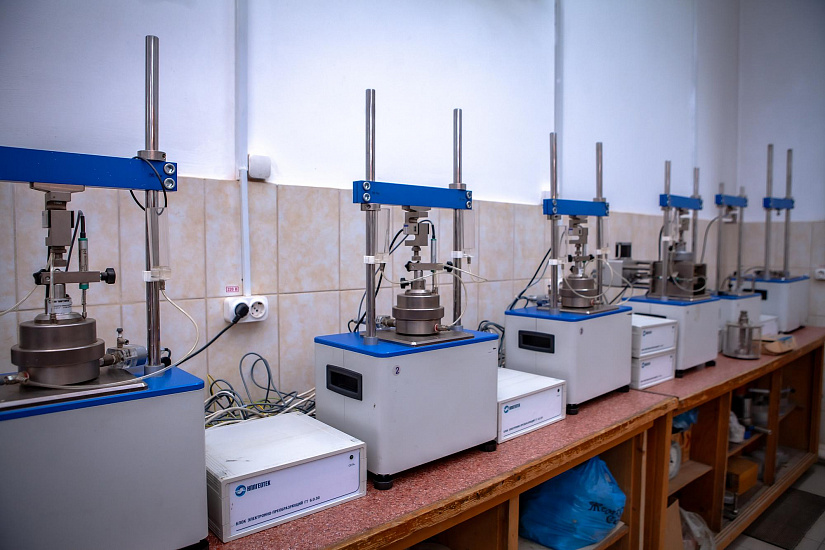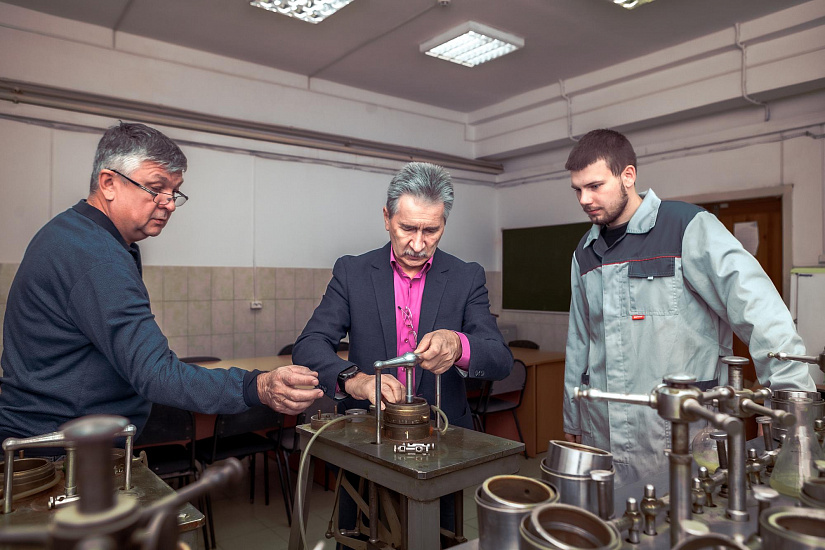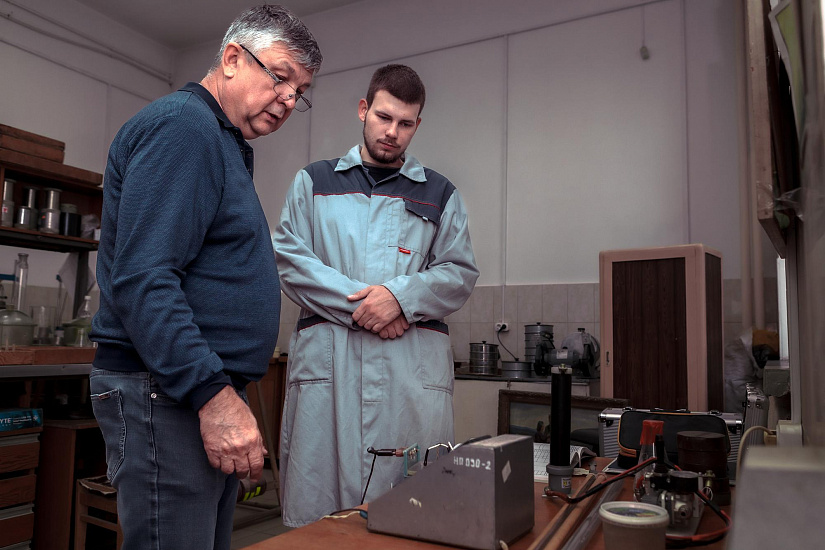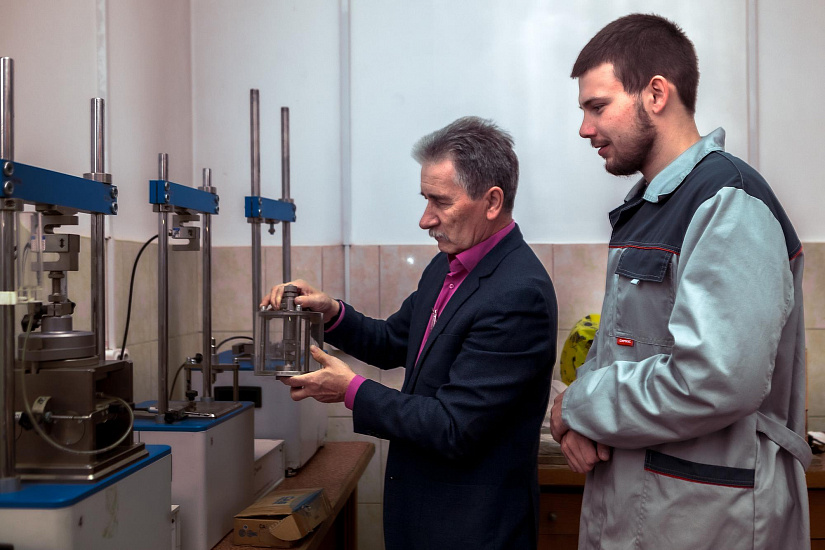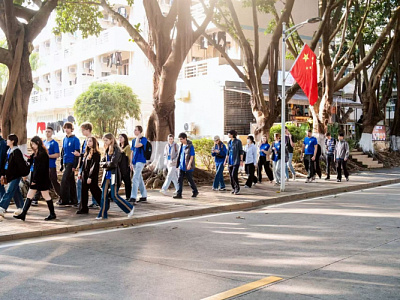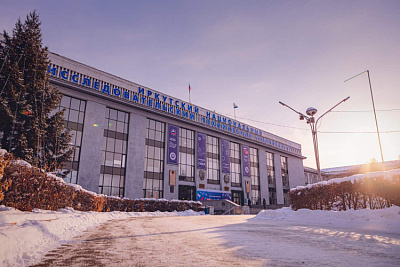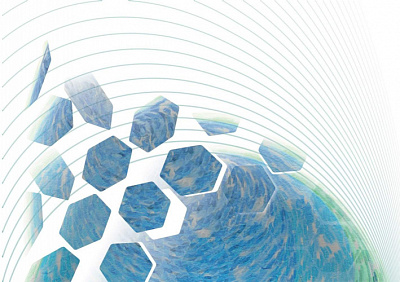INRTU Laboratory of Engineering Petrology and Permafrost Science Accredited
The Laboratory of Engineering Petrology and Permafrost Science of INRTU Siberian School of Geosciences (SSG) has been accredited by Rosstandart (Federal Agency on Technical Regulating and Metrology). The certificate allows the lab to study soil physical and mechanical properties. Large companies carrying out permafrost construction in Siberia, the Far East and the Republic of Sakha (Yakutia) are interested in such research.
The Laboratory of Engineering Petrology and Permafrost Science was established in summer 2024 under the SSG Department of Engineering Geology. It is headed by Andrey Chernov. The certificate confirms that the research results meet the requirements of the legislation on uniformity of measurements and GOST and ISO technical regulations (GOST R ISO 9001-2015).
"Now we can carry out not only educational and research projects, but also a wide range of scientific and production tasks for business and the state. This helps implement the i.GeoDesign strategic project under the Priority 2030 Program," says Andrey Chernov.
The soil survey is one of the first stages in the construction of any facility. On-site engineering activities expose the soil to increased loads, which can lead to its destruction and affect its strength.
The physical and mechanical properties of soils are crucial in calculating the type and size of foundations, determining the location of support structures, retaining walls, etc.
According to Andrey Chernov, INRTU is involved in the "Power of Siberia-2" project by order of Gazprom. The search on the soil material for the gas pipeline construction was carried out. This will be followed by exploration and design of development of the discovered resources.
Other SSG projects also require laboratory support, including the work on a set of methods for investigating the bearing capacity of foundation soils for the basements of unique buildings and structures.
The increase of the works range necessitate training personnel with skills in laboratory research. At present, students in the new laboratory master the Soil Science, Soil and Rock Mechanics and Engineering Geology programs.
The division is equipped with devices for compression and shear testing, uniaxial and triaxial compression. The equipment can also be used to determine soil corrosivity, moisture, plasticity and other physical parameters.
"As part of the Priority Program 2030, we plan to purchase an artificial climate chamber and other testing equipment. It will allow us to conduct geo-cryological engineering studies, model freezing and thawing processes, interaction between engineering structures and permafrost soils in Siberia, the Far East, and Yakutia, where SSG employees carry out engineering projects. The new equipment will make it possible to bring laboratory conditions closer to the real ones," Andrey Chernov added.Photos by Arseny Chekmarev
